#state of nature
Text
Okay, so what's happening in Palestine and The Ballad of Songbirds and Snakes/The Hunger Games have been on my mind lately (it's really all I think about, but okay), and I was thinking about the State of Nature of human beings and society as a whole and I got to some points to take out of my heart:
I've always been told that the world is a bad place, that the world is dark and bleak, the whole circus, and the first actual conversation I remember having about this was with my dad:
We had just left the theaters after watching Joker and I remember being really shocked and taken aback by the raw violence in it - not only the physical violence, but the underlying violence as well, the cruelty of it all - and my father saw this. I remember him saying in a kind of patronizing way that "that's the world" and that was the first time I remember being reluctant to accept that as a fact.
The second time I was put in contact with that point of view about the world was actually with my therapist: I was leaving an abusive relationship and I'm not sure whether she was referencing the abusive person's way of thinking or making a point to me about it, but she said that the world was cruel and egotistical. And once again I felt this really strong reluctance to accept that.
And it was only now, with TBOSAS and Palestine, that I finally pieced it together: I was reluctant because even if the world - the social and economic system we were raised in, the very system that depends on inequality and unfairness to prevail - is a bleak and cruel and unforgiving world, the same is not true at all for people because every time I look at people, there is always - amidst greed and cruelty and ignorance - someone, a lot of someones really, who stand up and do the right thing, like Katniss, or who is kind and protest in their own way, like Peeta.
I've read somewhere as well that anthropology has one main and silent principle: that people have always been people, in the sense that there were always people who loved each other so very much they were willing to die for them (it doesn't matter how different our concept of love is) but there were also people who drew dicks in walls because they were bored. And I know that has nothing to do with TBOSAS and the whole thing I was talking about in the beginning but bear with me for a second, I'll lead this back to where we started, okay?
When the Titanic was sinking (and I learned that from ashling on TikTok, okay) there was an ongoing stream of messages being sent everywhere in the seas that can be translated into messages of help, of worry, of discussions on how to help the Titanic and the people there, but not only that, the ship that rescued the people from Titanic, the Carpathia, actually almost burnt their engines trying to speed to the last coordinates of the Titanic so they could help out without thinking twice.
And that really struck me, not only because it's obviously a take on human kindness but because it resonates with what I was told before: the world is bleak - the very tale of the Titanic is the greed that created the catastrophe. But in the middle of that, around all of it, there are so many tales of compassion, humanity, and kindness that it's overwhelming, not only for the ships around the Titanic but in the very ship as well, like the musicians that stayed and played to the end to comfort the people.
And again, that reminds me of Palestine, how it's being destroyed by greed for oil and gas, how it's being destroyed by a belief system that dehumanizes Palestinian people. And still, in the middle of all of that, we see every day the Palestinian people fighting any way they can in the kindest of ways, by giving food to people even if they have little of it because they know their neighbors are starving, by going to bombarded places where there's shrapnel and rubble everywhere in flipflops and with no gear on because people need saving, by staying in occupied hospitals because their patients need them.
The courage of it all, the kindness, the fairness, and faith - it's all so Good it's almost suffocating. But more than that: the humanity with which we saw H'mmas' hostages being treated by them, the millions of people protesting everywhere in the entire world, the people crying all over TikTok, the people who are making themselves sick of preoccupation over those millions of people in Gaza and the West Bank. I look at this and it made me realize that the world might be dark, it might be cruel and unforgiving, but people are not.
And I stand for this: when it comes down to the people, we are good.
And it's really maddening to think about Snow and his own view of the world and how he thinks people at their very core are evil and therefore refuses to be influenced by every evidence of the contrary, by every tribute which shows kindness and compassion in the Arena, by every act of love and selflessness throughout not only his own book but The Hunger Games trilogy as well because it's how some people really view the world and project this to humans.
He refuses to see the humanity in Lucy Gray coming back to save him after the bombing of the Arena, or the humanity of Lamina killing Marcus out of mercy, or Reaper's insistence on remaining kind to Dill as well as the other fallen tributes. He refuses to see the kindness in Sejanus' insistence on honoring Marcus with their district traditions, the deep empathy and regret in Dean Highbottom for his own foolishness, or even Tigris's selfless acts to support her family in every way she could.
He refuses to see the kindness, the goodness, the selflessness in the middle of the dark and cruel environment - world - the Capitol had created for all of them.
But people have always been people, we've always been the Kindness, the goodness that makes us protest and boycott, the empathy that makes us sick at having to bear witness to such horrors that are being done to our own. And that's because - as I referenced in my other essay about this - we humans thrive on community.
When we talk about our State of Nature, I genuinely believe that, if we were in fact evil in our cores, we'd be unable to form communities because they can only be formed through connection. And the more I see people, the more I see attempt, after attempt, after attempt to connect with people any way we can: could be through our phones, watching and bearing witness to the pain of others; through our protests and marches, screaming for our own to be saved because we know they're hurting; we are, everywhere at every time, connecting with people, even people when shouldn't be connecting with - like villains such as Snow.
And I think the first weapon of brainwashing beliefs such as fascism, nazism, and Zionism, is the suffocation of our children's ability to connect - with a targeted group, at first, but then everyone else that protects or "sides" with the targeted groups. As I typed that, I remembered a video I saw of Israeli kids being taught a song about destroying Gaza and its people by their mother.
And that's so sad for so many reasons, but especially because the suffocation of our children's ability to connect is the very doom of their existence - not only because it's isolating but also because we only thrive when we cooperate, since the beginning of our History. To suffocate our ability to empathize is to doom them to a very isolated and fearing-based life, it's why great empires based on dictatorships have always fallen - because connected people do not betray, connected people do not falter in their loyalty, but people who are only together out of collaboration - like the careers, or the US and Israel? To gain something from it?
They cheat and betray, and that's no basis for a thriving society..
It's ironic, really.
#the ballad of songbirds and snakes#coriolanus snow#lucy gray baird#the hunger games#lucy gray#tbosas#katniss everdeen#suzanne collins#books#dark academia#socialism#state of nature#political discourse#politics#free palestine#palestinian genocide#palestine#palestinian people#western imperialism#us imperialism#imperialism#colonialism#settler colonialism#settler violence#capitalism#anti capitalism
63 notes
·
View notes
Text
youtube
0 notes
Text
Ancient redwoods recover from fire by sprouting 1000-year-old buds
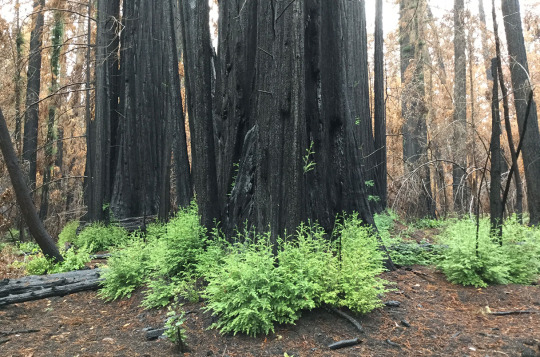
Article | Paywall free
When lightning ignited fires around California’s Big Basin Redwoods State Park north of Santa Cruz in August 2020, the blaze spread quickly. Redwoods naturally resist burning, but this time flames shot through the canopies of 100-meter-tall trees, incinerating the needles. “It was shocking,” says Drew Peltier, a tree ecophysiologist at Northern Arizona University. “It really seemed like most of the trees were going to die.”
Yet many of them lived. In a paper published yesterday in Nature Plants, Peltier and his colleagues help explain why: The charred survivors, despite being defoliated [aka losing all their needles], mobilized long-held energy reserves—sugars that had been made from sunlight decades earlier—and poured them into buds that had been lying dormant under the bark for centuries.
“This is one of those papers that challenges our previous knowledge on tree growth,” says Adrian Rocha, an ecosystem ecologist at the University of Notre Dame. “It is amazing to learn that carbon taken up decades ago can be used to sustain its growth into the future.” The findings suggest redwoods have the tools to cope with catastrophic fires driven by climate change, Rocha says. Still, it’s unclear whether the trees could withstand the regular infernos that might occur under a warmer climate regime.
Mild fires strike coastal redwood forests about every decade. The giant trees resist burning thanks to the bark, up to about 30 centimeters thick at the base, which contains tannic acids that retard flames. Their branches and needles are normally beyond the reach of flames that consume vegetation on the ground. But the fire in 2020 was so intense that even the uppermost branches of many trees burned and their ability to photosynthesize went up in smoke along with their pine needles.
Trees photosynthesize to create sugars and other carbohydrates, which provide the energy they need to grow and repair tissue. Trees do store some of this energy, which they can call on during a drought or after a fire. Still, scientists weren’t sure these reserves would prove enough for the burned trees of Big Basin.
Visiting the forest a few months after the fire, Peltier and his colleagues found fresh growth emerging from blackened trunks. They knew that shorter lived trees can store sugars for several years. Because redwoods can live for more than 2000 years, the researchers wondered whether the trees were drawing on much older energy reserves to grow the sprouts.
Average age is only part of the story. The mix of carbohydrates also contained some carbon that was much older. The way trees store their sugar is like refueling a car, Peltier says. Most of the gasoline was added recently, but the tank never runs completely dry and so a few molecules from the very first fill-up remain. Based on the age and mass of the trees and their normal rate of photosynthesis, Peltier calculated that the redwoods were calling on carbohydrates photosynthesized nearly 6 decades ago—several hundred kilograms’ worth—to help the sprouts grow. “They allow these trees to be really fire-resilient because they have this big pool of old reserves to draw on,” Peltier says.
It's not just the energy reserves that are old. The sprouts were emerging from buds that began forming centuries ago. Redwoods and other tree species create budlike tissue that remains under the bark. Scientists can trace the paths of these buds, like a worm burrowing outward. In samples taken from a large redwood that had fallen after the fire, Peltier and colleagues found that many of the buds, some of which had sprouted, extended back as much as 1000 years. “That was really surprising for me,” Peltier says. “As far as I know, these are the oldest ones that have been documented.”
... “The fact that the reserves used are so old indicates that they took a long time to build up,” says Susan Trumbore, a radiocarbon expert at the Max Planck Institute for Biogeochemistry. “Redwoods are majestic organisms. One cannot help rooting for those resprouts to keep them alive in decades to come.”
-via Science, December 1, 2023
#redwoods#california#wildfire#climate change#extreme heat#natural disasters#botany#plant biology#photosynthesis#santa cruz#hopepunk#sustainability#climate hope#united states#good news#hope
11K notes
·
View notes
Text
Rousseau really said "reject humanity, return to monke"
1 note
·
View note
Text
"when i was your age, i was working three jobs to help support my family" and "when i was in college i was sleeping on a mattress on the floor and living off of soup"
YOU SHOULDN'T HAVE HAD TO DO THAT. NO ONE SHOULD HAVE TO DO THAT. I DON'T KNOW HOW TO EXPLAIN TO YOU THAT THIS ISN'T A CHARACTER-BUILDING LESSON, IT'S JUST BAD
#have you maybe considered even once that an 8-5 job is not the natural human state#'i never had a job with so much leisure time'#YOU NEVER WORKED A SHIFT JOB#EVEN WHEN YOU WERE SCRAPING BY IN COLLEGE#I DON'T KNOW HOW TO TELL YOU THINGS HAVE GOTTEN EVEN WORSE SINCE YOU WERE MY AGE#screams forever and ever#sorry this is literally just incoherent venting
2K notes
·
View notes
Text

Hooded Merganser
#Queueue#bird#bird watching#birdwatching#birds#birb#birdwatchers#birdblr#Original Photography#photography#my photography#original photographer#photographers of tumblr#photographers on tumblr#lensblr#original photography blog#nature photography#nature#uncropped nature#wildlife#wildlife photography#wildlife photographer#critter#animal#washington state#west coast best coast#pnw#upper left corner#PNW Vibes#wa state
2K notes
·
View notes
Text
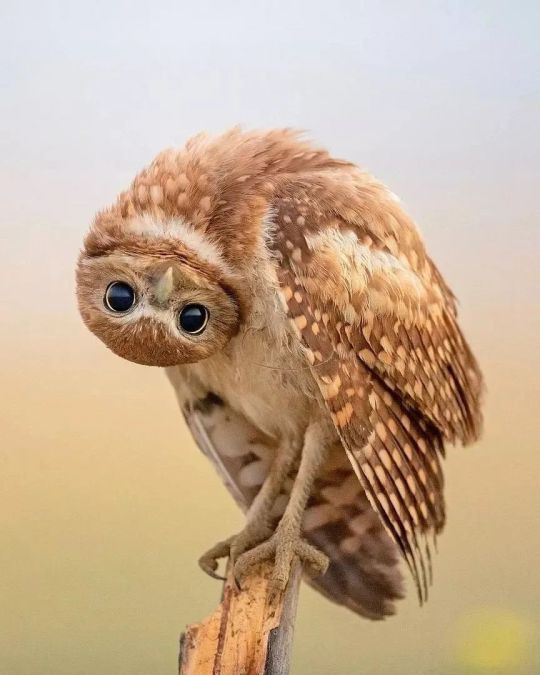
" Burrowing Owl " //© Ben Jiang
#California#United States#nature#Portraits#wildlife#birds#Owls#aesthetics#wanderlust#explore#follow#discover
5K notes
·
View notes
Text
"I think it's sweet," Steve says.
Robin wrinkles her nose. "Nothing about Eddie Munson is sweet. He's a sewer rat, at best. Or like twenty opossums in a trench coat."
"Opossums are cute."
"He probably has rabies."
"You say that about me all the time, so I guess that's good. We'll have rabies together."
"He gave you a rock."
"You give me rocks all the time," Steve says, rolling his eyes. He runs his thumb along the textured edge of the rock Eddie'd handed to him.
"Yeah, good rocks." Robin scoffs. "That one sucks."
#steddie#stobin#autism eddie and robin but they have different tastes in rocks#robin like smooth ones especially if they're shiny#eddie likes the ones that are shaped a certain way with texture#steve has jars FULL of their gifts#IS the rock collection/gifting thing an autism-ism??? me and my undiagnosed/undefined mental state does not know#ALSO opossums are naturally extremely resistant to rabies!! fun fact from your local opossum defender yaba#my steddies
2K notes
·
View notes
Text
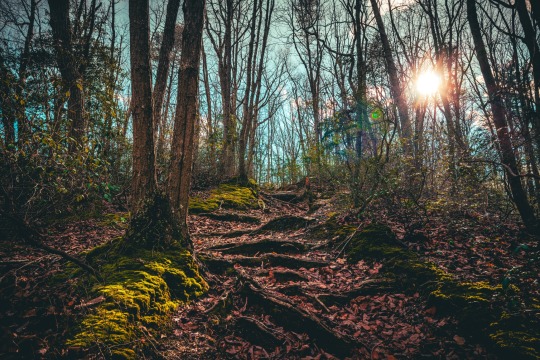
Find me frolicking in the woods
#Calvert cliffs state park#Maryland#aimeekb#hiking#lesbians who hike#nature#natures staircase#forest#travel#explore#adventure#landscape#forestcore#travel photography#mossy forest#trees#big trees#sunsets#l
2K notes
·
View notes
Text

#oddcore#liminal reality#liminal spaces#surrealcore#fever dream#nature#green#altered mental states#mundane#experience
2K notes
·
View notes
Text
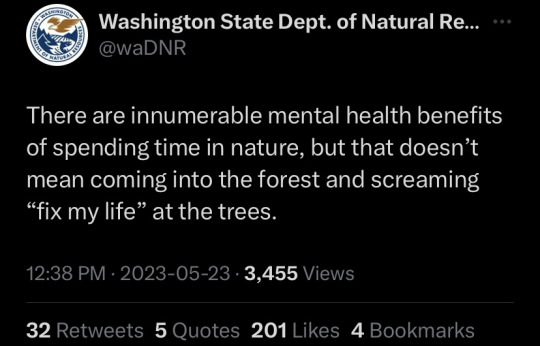
6K notes
·
View notes
Text
I'd really love to say I like the theory that Everlarck haunted Snow because of what SnowBaird could've been but I can't because I really don't believe Snow is bothered by their love in that way.
Remember: as infatuated as he was with Lucy Gray, Snow didn't really like life in the Districts or the forest, like Lucy and the rest of the Covey. He craved the order, control, and "civility" of the Capital and the power that came with the status he had as a citizen of it.
As we see Snow in TBOSAS, he never really changes his personality, he just goes on and on bringing up a façade for each person he interacts with based on what characteristics he thinks it's best to charm them. So when he falls for Lucy (be it love or not), even though he wants her, he doesn't really want the life he's gonna get with her. He actually abhors the idea of the kind of life Lucy Gray craves.
The only thing that does change in Snow throughout the book are his opinions and worldview - "Mister Snow, what are the Games for?" -, he loses all of the morals he thought he had to abide in order to maintain his status. And it's fair to assume those changes of opinion keep happening as he progresses after the end of The Ballad of Songbirds and Snakes because that's what happens as human beings age.
But the direction of Snow's opinions is clear: that love is a weakness, that love is not something worth fighting for, that is something fleeting and unstable, so why would it ever bother him that Peeta and Katniss felt what he considered to make them weaker and feeble? Remember again: Snow doesn't see love like the rest of us do, he doesn't want to - what he does want is to see the world in a light that confirms his own view of it, and he warps facts to fit into his narrative.
In his mind, at first, Katniss didn't really love Peeta, which further proved his belief in love and what it really was, but as time progressed and he realized she did love Peeta, his belief turned to the one where Katniss would betray her allys (including Peeta) to keep on living. At last, the realization that their love wasn't selfish was an opportunity for him to make Katniss bend or break during the revolution, and when she didn't, it proved to him her love wasn't so strong to the point where she'd breach no limits to save him.
But that's the thing, even if he did believe Katniss' and Peeta's love for each other was pure and selfless, he still wouldn't envy them, he wouldn't see this as something he could've had with Lucy Gray. At least, I don't think 82-year-old President Snow would've because we have to remember that this version of Snow got everything he ever craved so much: all the power in the world to do as he pleased for the entirety of his life. Let me remind y'all: Snow was already dying when the revolution came, his power was already at its end. It's the reason why he laughs as he's killed: it doesn't really matter whether he's killed by his own poison, the rebels, or Katniss herself because he'd already won his entire life by then.
He did everything his younger self wanted to do, he became everything his younger self wanted to be, and he thrived in it for his entire life. He's so corrupted by then he probably thinks of his "love" for Lucy Gray as a lapse of judgment, one he'd never desire in the first place.
So no, I don't think Snow was bothered by Everlark because they represented what he could've been with Lucy, I think it bothers him because it's yet another facet of Katniss he cannot control, and more than that: it's the living proof his entire worldview on human beings -as passed on by doctor Gaul and his own experiences during the Dark Days -being bad and selfish at their core was actually wrong.
Please let's be cautious, and not make the mistake yet again of reducing a story about human nature and how it shapes the worldview of people, therefore having consequences on how we act in society, to a love story. Snow and Lucy Gray are compelling together as a couple, but the point is that Snow views human beings a certain way and, because of that, he begins to justify his terrible acts. It's a masterpiece of a villain origin story, not a love story - not entirely anyway.
#the ballad of songbirds and snakes#tbosas#president snow#coriolanus snow#katniss everdeen#katniss and peeta#peeta melark#the hunger games the ballad of songbirds & snakes#the hunger games theory#the hunger games peeta#thg#lucy gray baird#lucy gray#state of nature#villain origin story#ballad of songbirds and snakes
51 notes
·
View notes
Text
This is from last summer (I found it while trying to clean up browser tabs--oops.) Anyway, it's one of many examples of critically endangered species showing an upturn in population with support. The Devils Hole pupfish is particularly imperiled because it is only found in one flooded cavern in Nevada's Amargosa Desert; the species is likely descended from fish that were washed in there by flooding thousands of years ago, and have managed to eke out a living in the hot, oxygen-deficient water ever since.
This is one of the first species ever listed under the U.S. Endangered Species Act. Devils Hole is threatened by groundwater depletion from well drilling, and after the pupfish's ESA listing there were numerous legal battles between conservationists and farmers over water usage. Water levels reached their lowest point in the early 1970s, but have been slowly rising since then.
Scientists are excited because the current wild population (at least as of last fall) is at 263 fish. That's up from just 35 in 2013, the lowest recorded population ever. There are a few hundred more in captivity, being used to breed more young for reintroduction. The hope is that this fall's wild count will break 300, a good sign for the world's most endangered fish.
By the way, THIS is the entirety of the Devils hole pupfish's habitat, the only place in the world where they are found:
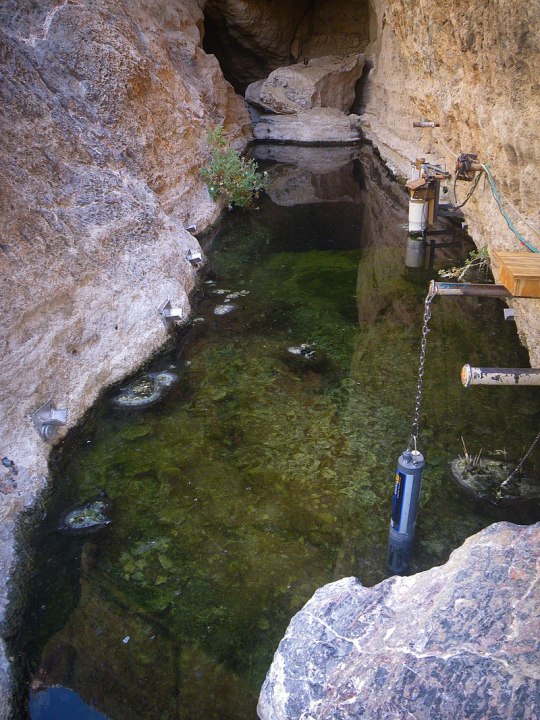
#Devils Hole pupfish#Devils Hole#fish#icthyology#vertebrates#animals#wildlife#endangered species#endangered animals#extinction#nature#ecology#environment#conservation#science#scicomm#Nevada#United States#Endangered Species Act#Endangered Species List
1K notes
·
View notes
Text
The Klamath River’s salmon population has declined due to myriad factors, but the biggest culprit is believed to be a series of dams built along the river from 1918 to 1962, cutting off fish migration routes.
Now, after decades of Indigenous advocacy, four of the structures are being demolished as part of the largest dam removal project in United States history. In November, crews finished removing the first of the four dams as part of a push to restore 644 kilometres (400 miles) of fish habitat.
“Dam removal is the largest single step that we can take to restore the Klamath River ecosystem,” [Barry McCovey, a member of the Yurok Tribe and director of tribal fisheries,] told Al Jazeera. “We’re going to see benefits to the ecosystem and then, in turn, to the fishery for decades and decades to come.” ...
A ‘watershed moment’
Four years later, [after a catastrophic fish die-off in 2002,] in 2006, the licence for the hydroelectric dams expired. That created an opportunity, according to Mark Bransom, CEO of the Klamath River Renewal Corporation (KRRC), a nonprofit founded to oversee the dam removals.
Standards for protecting fisheries had increased since the initial license was issued, and the utility company responsible for the dams faced a choice. It could either upgrade the dams at an economic loss or enter into a settlement agreement that would allow it to operate the dams until they could be demolished.
“A big driver was the economics — knowing that they would have to modify these facilities to bring them up to modern environmental standards,” Bransom explained. “And the economics just didn’t pencil out.”
The utility company chose the settlement. In 2016, the KRRC was created to work with the state governments of California and Oregon to demolish the dams.
Final approval for the deal came in 2022, in what Bransom remembers as a “watershed moment”.
Regulators at the Federal Energy Regulatory Commission (FERC) voted unanimously to tear down the dams, citing the benefit to the environment as well as to Indigenous tribes...
Tears of joy
Destruction of the first dam — the smallest, known as Copco 2 — began in June, with heavy machinery like excavators tearing down its concrete walls.
[Amy Cordalis, a Yurok Tribe member, fisherwoman and lawyer for the tribe,] was present for the start of the destruction. Bransom had invited her and fellow KRRC board members to visit the bend in the Klamath River where Copco 2 was being removed. She remembers taking his hand as they walked along a gravel ridge towards the water, a vein of blue nestled amid rolling hills.
“And then, there it was,” Cordalis said. “Or there it wasn’t. The dam was gone.”
For the first time in a century, water flowed freely through that area of the river. Cordalis felt like she was seeing her homelands restored.
Tears of joy began to roll down her cheeks. “I just cried so hard because it was so beautiful.”
The experience was also “profound” for Bransom. “It really was literally a jolt of energy that flowed through us,” he said, calling the visit “perhaps one of the most touching, most moving moments in my entire life”.
Demolition on Copco 2 was completed in November, with work starting on the other three dams. The entire project is scheduled to wrap in late 2024.
[A resilient river]
But experts like McCovey say major hurdles remain to restoring the river’s historic salmon population.
Climate change is warming the water. Wildfires and flash floods are contaminating the river with debris. And tiny particles from rubber vehicle tires are washing off roadways and into waterways, where their chemicals can kill fish within hours.
McCovey, however, is optimistic that the dam demolitions will help the river become more resilient.
“Dam removal is one of the best things we can do to help the Klamath basin be ready to handle climate change,” McCovey explained. He added that the river’s uninterrupted flow will also help flush out sediment and improve water quality.
The removal project is not the solution to all the river’s woes, but McCovey believes it’s a start — a step towards rebuilding the reciprocal relationship between the waterway and the Indigenous people who rely on it.
“We do a little bit of work, and then we start to see more salmon, and then maybe we get to eat more salmon, and that starts to help our people heal a little bit,” McCovey said. “And once we start healing, then we’re in a place where we can start to help the ecosystem a little bit more.”"
-via Al Jazeera, December 4, 2023
#indigenous#river#riverine#ecosystem#ecosystem restoration#klamath#klamath river#oregon#california#yurok#fishing#fisheries#nature is healing#literally this time lol#united states#dam removal#climate change#conservation#sustainability#salmon#salmon run#water quality#good news#hope#rewilding#ecology#environment
5K notes
·
View notes
Text
It's literally stomach turning to see how the German government and media are using current events to promote the revisionist narrative that antisemitism in Germany is a foreign body that has been imported by immigrants in order obscure the BRD's own failure at denazification after 1945 and to warrant tougher immigration laws in the future. They do this by dehumanizing Palestinians as a people, associating their culture with terrorism, banning them from mourning the loss of their families, threatening them with deportation, arresting them, patrolling their neighborhoods, banning their cultural clothing from Berlin schools, using police violence against children, etc, etc. Every Palestinian in Germany right now is standing under general suspicion. The vice chairwoman of the CDU, Karin Prien, stated on the topic of fighting antisemitism in Germany: "We have to take their resonance spaces. Close down their mosques, their cafés their associations and confiscate the money that would otherwise be used for terror in the world." A violently racist statement that is not surprising in a violently racist country that has learned nothing from its history no matter how much it pretends to have done so, having cops terrorize the streets in Berlin Neukölln, the district with the largest Palestinian community in Europe while there are Nazis currently sitting in the Bundestag. Complicit in genocide, all of you!!
#i feel like im going insane#do you know that germany plans on having the recognition of israels right to exist as a state be one of the criteria for naturalization in#the future#nothing new of course nothing new germany stands with israel because of personal interests no ethics involved
2K notes
·
View notes
Text
if i lived in the state of nature i would take up pottery, learn to befriend raccoons, eat pomegranates, maybe build a cabin. i don’t think i’d have the desire to start wars but that’s just me ig
1 note
·
View note